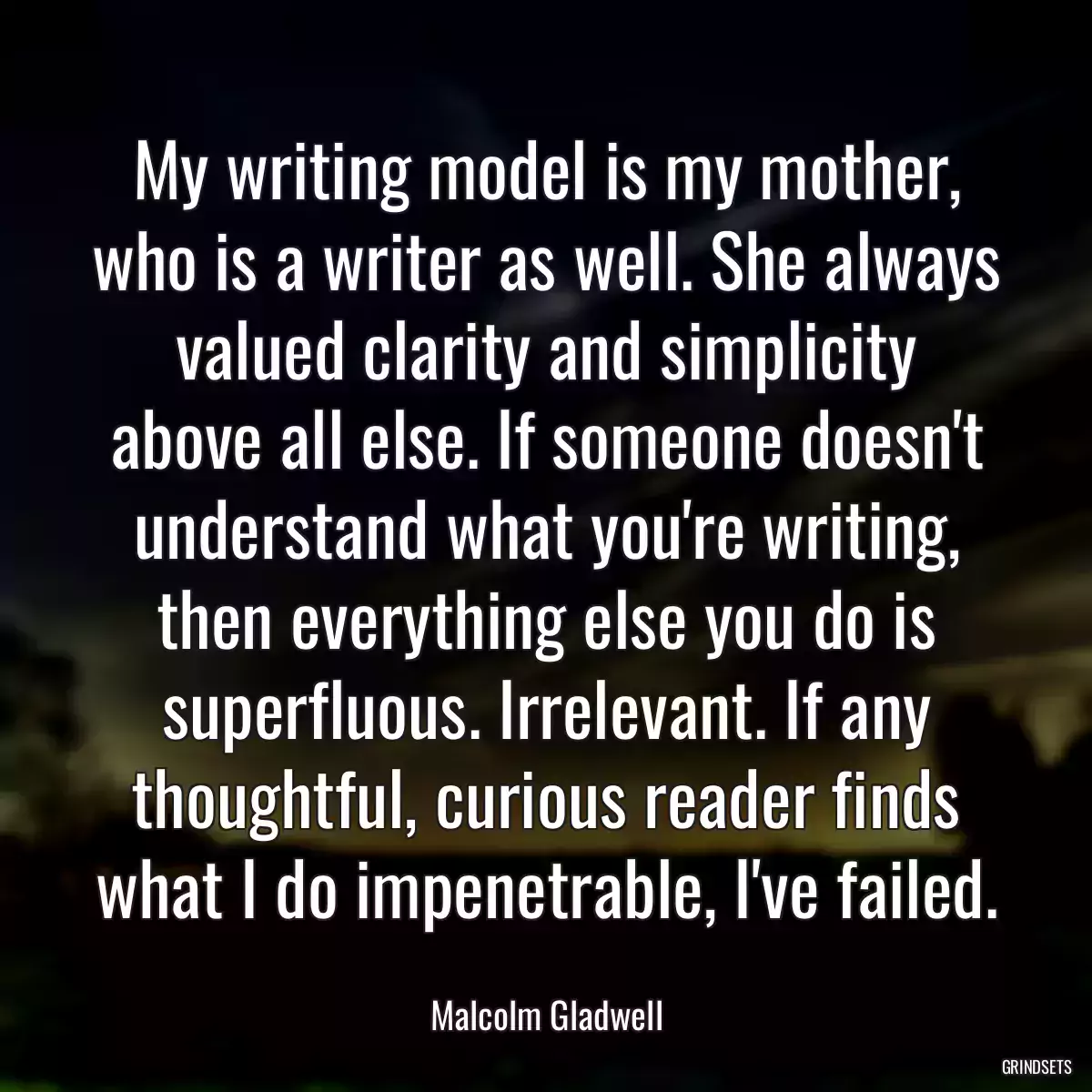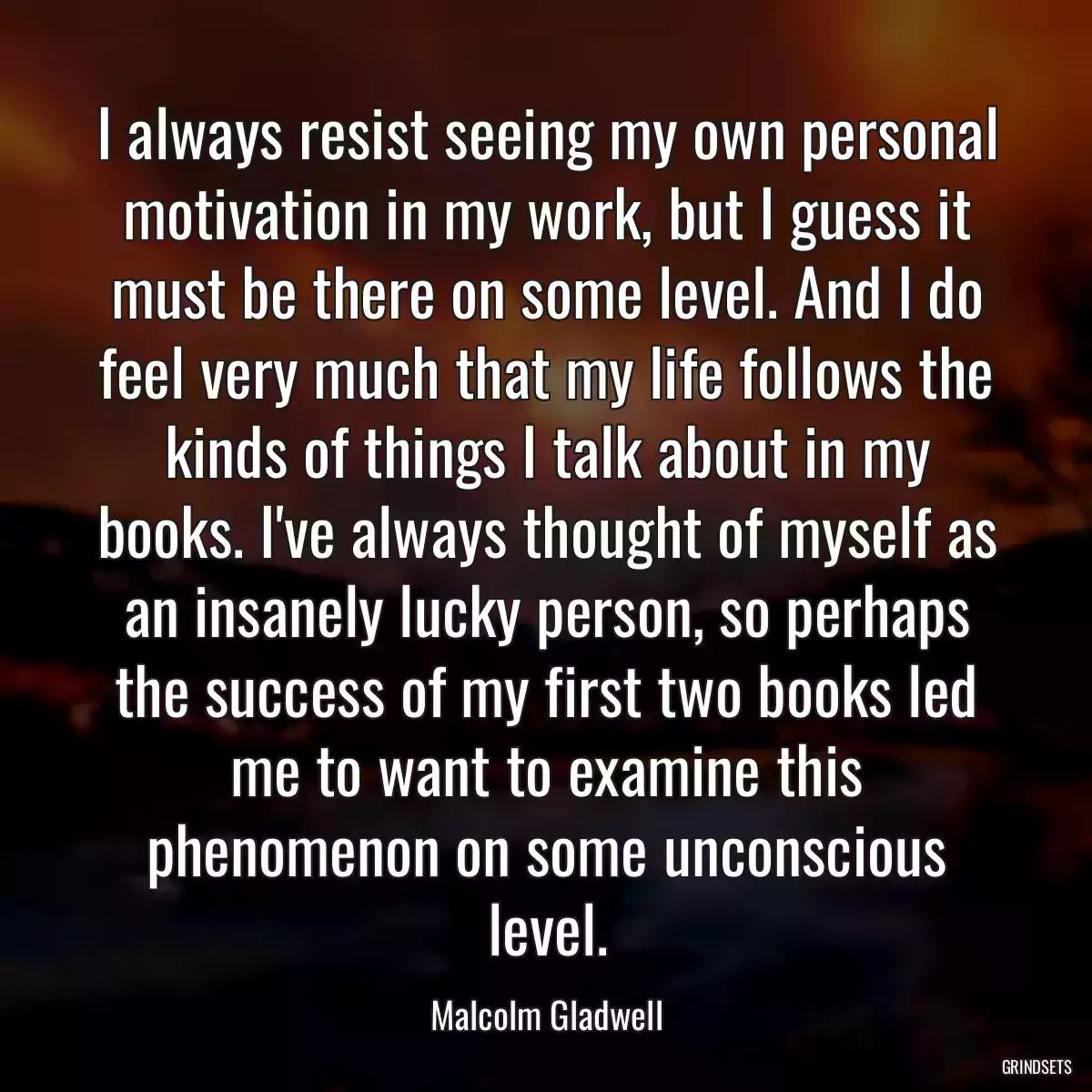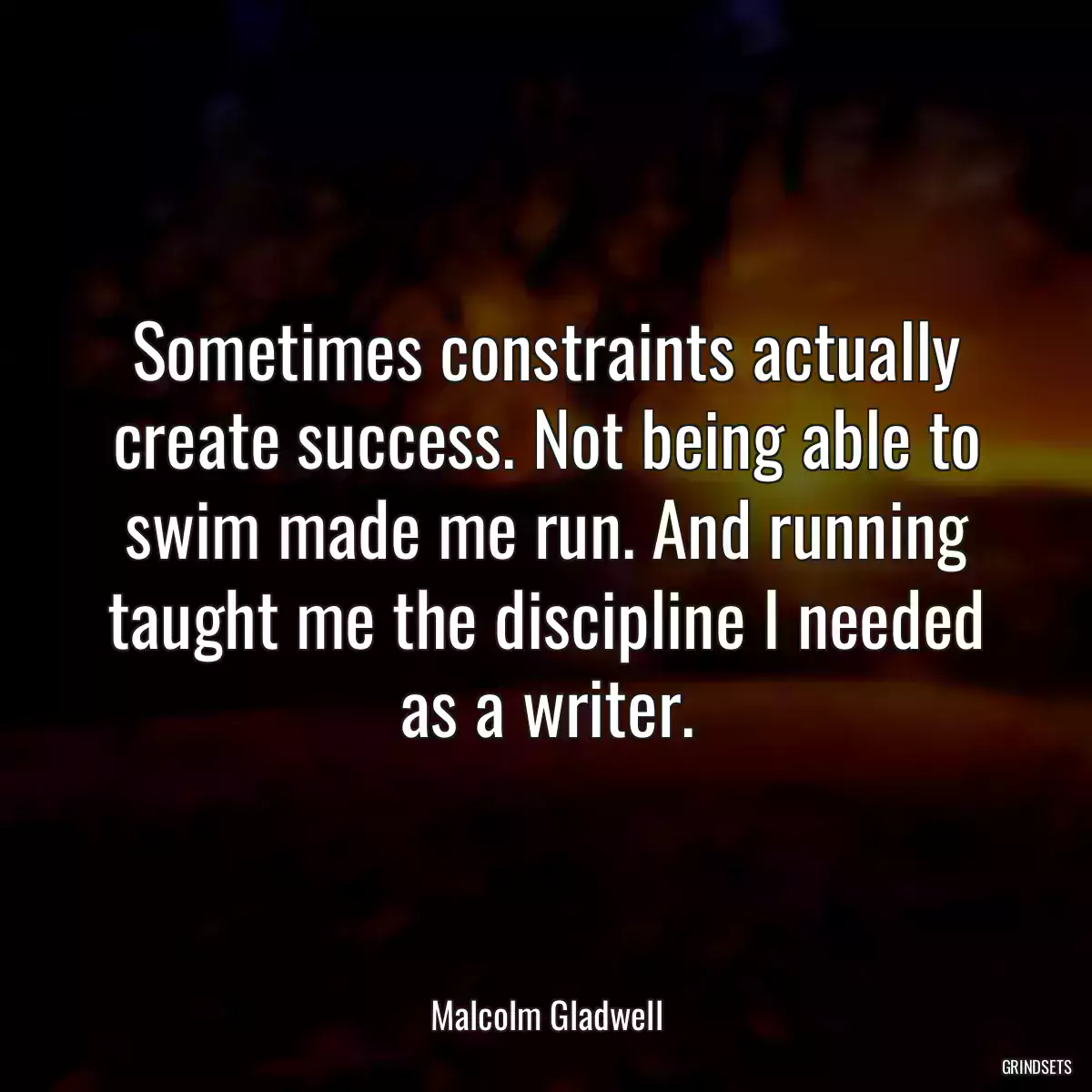
Quotes Malcolm Gladwell
Find dozens of Malcolm Gladwell with images to copy and share.

We vary greatly in the natural advantages that we've been given. The world's not fair
We sometimes think of being good at mathematics as an innate ability. You either have "it" or you don't. But to Schoenfeld, it's not so much ability as attitude. You master mathematics if you are willing to try.
That fundamentally undermines your ability to access the best part of your instincts. So my advice to those people would be stop thinking and introspecting so much and do a little more acting.
You may also like
You need to have the ability to gracefully navigate the world.
I suspect people who are indecisive are people who are far too enamored of analysis in all settings and are destroying their ability to make an instinctive judgment through over-analysis
and that's dangerous.
I worry that track is going to enter into an impossibly complicated stage, where our understanding of the complexities of human physiology - and our ability to accentuate and exploit them - is going to make the notion of pure competition impossible.
Nothing frustrates me more than someone who reads something of mine or anyone else's and says, angrily, 'I don't buy it.' Why are they angry? Good writing does not succeed or fail on the strength of its ability to persuade. It succeeds or fails on the strength of its ability to engage you, to make you think, to give you a glimpse into someone else's head—even if in the end you conclude that someone else's head is not a place you'd really like to be.
It changes how people read you if you believe in God. It gives insight into your motivation, how you look at problems and how you deal with people.

I always resist seeing my own personal motivation in my work, but I guess it must be there on some level. And I do feel very much that my life follows the kinds of things I talk about in my books. I've always thought of myself as an insanely lucky person, so perhaps the success of my first two books led me to want to examine this phenomenon on some unconscious level.
We tell ourselves that skill is the precious resource and effort is the commodity. It's the other way around. Effort can trump ability-relentl ess effort is in fact something rarer than the ability to engage in some finely tuned act of motor coordination.
[Norden] said, with the Mark 15 Norden bombsight, he could drop a bomb into a pickle barrel at 20,000 feet.
The issue isn't the accuracy of the bombs you have, it's how you use the bombs you have - and more importantly, whether you ought to use bombs at all.
Once a musician has enough ability to get into a top music school, the thing that distinguishes one performer from another is how hard he or she works. That's it. And what's more, the people at the very top don't work just harder or even much harder than everyone else. They work much, much harder.
Good writing does not succeed or fail on the strength of its ability to persuade. It succeeds or fails on the strength of its ability to engage you, to make you think, to give you a glimpse into someone else's head.
Those three things - autonomy, complexity, and a connection between effort and reward - are, most people will agree, the three qualities that work has to have if it is to be satisfying.
Innovators have to be open. They have to be able to imagine things that others cannot and be willing to challenge their own preconceptions. They also need to be conscientious. An innovator who has brilliant ideas but lacks the discipline and persistence to carry them out is merely a dreamer ... But crucially, innovators need to be disagreeable ... They are people willing to take social risks-to do things that others might disapprove of.
I interviewed one of the most powerful lawyers in the world and he told me, "At the time, it was the worst thing in the world not to be able to get a job at a fancy law firm, but it's the greatest thing that ever happened in my life." It was a humble acknowledgment of how forces much larger than himself shaped his career. I really wanted to bring that point home.
You may also like

being able to act intelligently and instinctively in the moment is possible only after a long and rigorous of education and experience